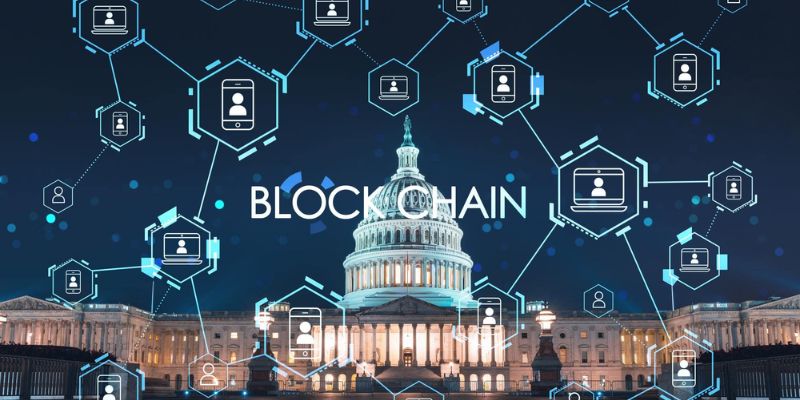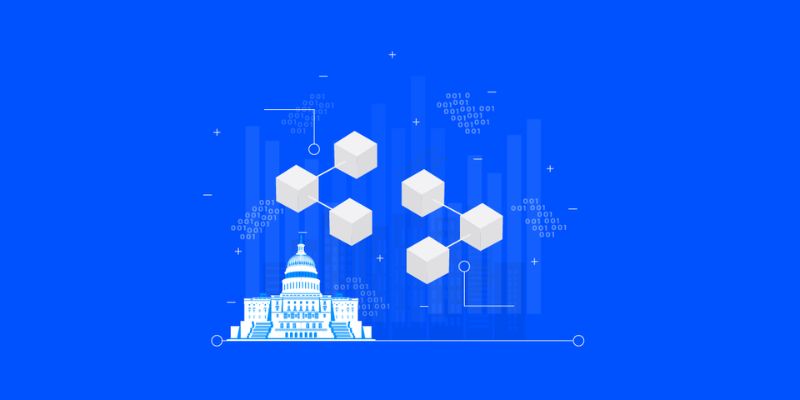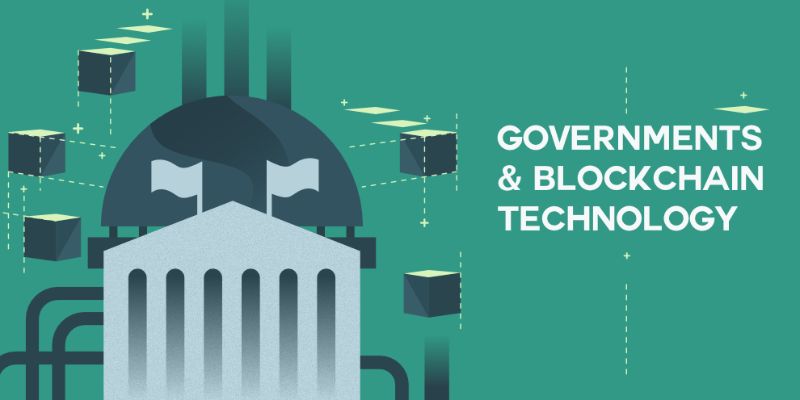Blockchain in government isn’t just a buzzword—it’s a game-changer for public services. By adding layers of trust and transparency, it’s shaping a new age of governance where every transaction, every record is clear as day. Imagine a world where you could see how every penny of your taxes is spent or track the progress of the public project down your street without a shred of doubt. That’s the power of blockchain at work in the public sector. Join me in uncovering how this technology is not just transforming, but revolutionizing the way governments operate. Buckle up, as we dive into a future where public services meet unprecedented efficiency and transparency.
Understanding Blockchain in Public Administration
The Fundamentals of Government Digital Ledgers
A digital ledger is like a book that stores data. But it’s not any book. It’s a book that many can see, but no single person owns. Think of it as a shared story of what happens in government work. This story includes who owns what, who gives what to whom, and who agrees to what — all the big and little deals.
In government, these ledgers are key for keeping records safe and sound. They make sure that once something is written, it can’t just be rubbed out. Now, with blockchain, the game has changed.
Blockchain lets us write in this book with magic ink. Once written, no one can erase it. That means everyone can trust this is the real story. It’s this trust that makes blockchain a big deal. Leaders can use it to make their work more open and to stop bad actors.
Blockchain in government isn’t just for techies or money experts. In simple terms, it’s a tool for keeping track safe. This helps in many areas, like when we vote. It can show our vote counts as it should. Or it can help when we pay taxes. It makes sure our money goes where it’s meant to.
If done right, it gives power back to the people. It helps keep leaders in check. It shines a light on the work they do. It’s like giving everyone a flashlight to spot anything that’s off.
Deploying Blockchain for State Services and Secure Transactions
Let’s talk about how we use blockchain for state services. Services are things like getting an ID card, signing up for health care, or registering for school. These often take time and lots of paperwork. It can be a headache.
Imagine doing all that without the long lines or waiting days for an answer. Blockchain can do this. It can make things move faster and without mistakes. When we use blockchain, we also use something called smart contracts. These are like deals that can think for themselves. Once certain things happen, they just go ahead and do the next step without needing a person to check.
This doesn’t just make life easier for us. It also saves a whole lot of money. It means less paper, less time, and fewer people needed to do the checking. This is huge for making the government run better.
Blockchain also makes things safer. When we send information or money, it’s like sending it with a bodyguard. This bodyguard makes sure it gets to the right place, without anyone messing with it.
So, we’re creating a world where our interactions with the state are quicker, safer, and fairer. This is how blockchain brings big changes to the way we live. It’s not just about coins or computer codes. It’s about making real life better for all of us. As we dive deeper into the digital age, blockchain is becoming a friend we can count on — one that holds leaders to their word and puts the citizens first.
Enhancing Public Sector Efficiency with Blockchain
The Role of Smart Contracts in Streamlining Government Operations
Smart contracts change how we handle agreements. They are like vending machines. You put in money, select the item, and get your drink without help. Now, imagine this in the government. You follow rules, the contract does its job, no people needed.
Smart contracts for government operations help with tasks like giving out business licenses. No more waiting! Fill in forms, the system checks, and you get your license fast. It cuts red tape. You save time, the government saves money. People are happier, and work gets done quicker.
Some fear change, but this tech brings only good. It keeps everyone honest. Agreements must happen as written, no room for shady deals.
Blockchain-Based Voting Systems and Digital Identity Verification
Voting is key to democracy. But many worry about if it’s all counted right. Blockchain voting systems turn this fear around. They make votes clear as glass, no guessing if they’re true.
Here’s how it works: you vote from a device. Your vote turns into a code. Only you and the system can see it. The system adds it up with no errors and no cheats. It’s fast and all can see the results right away.
But what about who you are online? This is where blockchain identity verification steps in. No one wants a stranger taking their spot. Blockchain makes sure you are you. It checks your data safely, stores it in a way that nobody can mess with it.
This tech helps in many ways, like signing up for health care or paying taxes. It skips lines and wait times. It gives trust back to the people in how they talk to their government.
Using blockchain for state services isn’t just a dream. Places are already doing it and seeing great results. Each bit saved, each second cut down, adds up. It’s time we all hop on this. Our government can do more, with less hassle. Blockchain isn’t just a buzzword; it’s the new smart way to serve the public.
Building Transparency and Accountability in Governance
Blockchain’s Impact on Anti-Corruption Measures and Public Audit Systems
How does blockchain boost anti-corruption efforts? By making data public and unchangeable. Blockchain logs every change made. No one can hide their actions. This builds trust among citizens. It’s like a ledger that everyone can see but no one can erase.
Blockchain helps track how money is spent in government. With every transaction recorded, stealing public funds gets harder. Citizens can see where their taxes go. This kind of system means less chance for funny business. It can also speed up how we share information. This makes governments work better and builds public trust.
Now, let’s talk land. Blockchain-enabled land registries can stop land grab issues. In the past, records were on paper or in a single computer system. They could be changed or lost easily. With blockchain, every sale or change is permanent and clear. People own their land without fear. Also, buying and selling become faster and cheaper. So, people are happy and the economy is too.
National Blockchain Strategy for Transparent Government Record-Keeping
Why do we need a national blockchain strategy? It sets clear rules for using blockchain in government. It makes sure people use this tech in good ways. A good strategy helps everyone know what to expect. It leads to better services for citizens.
A national strategy tells government workers how to move records to blockchain safely. For recording who owns what land, who is a citizen, or who can vote. It can even help with making sure people only vote once. It can be used for small tasks too, like checking who checked out a library book. This kind of record-keeping makes sure no one gets left out or forgotten. It helps keep everyone’s story straight.
Smart contracts are another great tool. They are like regular contracts but run on blockchain. They can automatically do tasks when certain conditions are met. Think of it like a vending machine for legal deals. Put in the right task, get out the right action. Smart contracts can save time and cut down on mistakes. This means government workers can focus on more important stuff.
In summary, blockchain is a solid pick for fighting corruption and improving how government works. A national strategy sets the stage for using this tech well. With clear rules, all government agencies can work together better. This means better services for you and me. And in the end, that’s what really counts.
Blockchain’s Expanding Role Across Various Government Sectors
Implementing Decentralized Platforms for Defense and Healthcare
Governments are always looking to protect their people. They want safe and healthy communities. That’s where blockchain comes in. It’s more than just tech talk; it’s a game-changer for how we do things. Let’s dig into defense and healthcare.
For starters, defense is about keeping a country safe. It deals with very secret stuff. That’s why blockchain is perfect. It keeps information secure and away from the wrong hands. In defense, this means better safety for everyone.
In healthcare, we all want our medical details kept private. Blockchain does this by making sure only the right people see your health records. It also speeds up how fast we can get this info when we really need it. This means better care for you and me.
Regulatory Frameworks and Future Prospects for Blockchain in Government Budgets and Procurement
Money matters, especially when it’s public funds. Blockchain helps make sure this money is spent right. It tracks every dollar so we can see where it’s going. For government budgets, this means no more mystery spending. We can all see what’s being paid for.
Procurement is another big area. This is how the government buys what it needs. Blockchain makes this process open and fair. It stops any sneaky business so that the best company gets the job. The result? Better value for our community.
Blockchain isn’t just coming; it’s here. We’re seeing it grow in federal agencies, keep records, and manage public funds. It’s building trust in our government. This is how we step into the future, with clear and open services for everyone. Keep an eye on it – blockchain is making government work better for us all.
In this post, we broke down how blockchain can change public work. We explored how it can secure state services, improve speed with smart contracts, and ensure safe voting. We also saw how it fights corruption and makes government records clearer.
Think of blockchain like the gears in a clock—each part works with others to keep things accurate and on time. For governments, it means less red tape and more trust from us, the people they serve. The future looks bright as defense and healthcare start using blockchain too. With the right rules in place, this could mean big wins for how we track government spending.
I believe blockchain is a game-changer for public service. It’s not just a tech trend; it’s a chance to make our leaders work better for us. Let’s keep an eye on this space! It can only get better from here.
Q&A :
How is blockchain technology being used in government sectors?
Blockchain in government involves the implementation of distributed ledger technology to improve the transparency, security, and efficiency of public services. This adoption can streamline processes such as record keeping, voting systems, identity verification, and supply chain management within various government departments. By reducing bureaucracy and potential for fraud, blockchain promises to enhance public trust and accountability in governmental procedures.
What are the benefits of blockchain for government services?
The integration of blockchain into government services offers numerous benefits. It enhances data integrity and trust by providing an immutable and transparent ledger. Blockchain also reduces operational costs by eliminating intermediaries and streamlines processes, potentially leading to faster and more efficient public services. Furthermore, it can improve security measures against cyber threats while enabling more accessible and secure digital government experience for citizens.
Can blockchain technology aid in government transparency and accountability?
Blockchain technology can significantly aid in government transparency and accountability by creating an unalterable record of transactions and interactions. It ensures that data is not tampered with, making it easier to audit and track the use of government resources. This immutable trail can deter corruption and enable citizens to see precisely how public funds are being used, fostering greater trust between the government and the populace.
What challenges face the implementation of blockchain in government?
Implementing blockchain in government presents several challenges. Firstly, the preparation and training required for public servants to understand and manage the new technology can be extensive. Secondly, regulatory and legal frameworks may need to be updated to accommodate the decentralized nature of blockchain. Integration with existing systems can also be complex and costly. Lastly, concerns about scalability, energy consumption, and data privacy need to be addressed effectively.
How does blockchain ensure secure government transactions?
Blockchain ensures secure government transactions by utilizing cryptography to create a secure and unforgeable record of each transaction. Each block in the chain contains a cryptographic hash of the previous block, a timestamp, and transaction data, making it virtually impossible to alter information retroactively. Through network consensus mechanisms, blockchain allows for the verification and validation of transactions without a central authority, thereby enhancing the security of government transactions against tampering and fraud.


